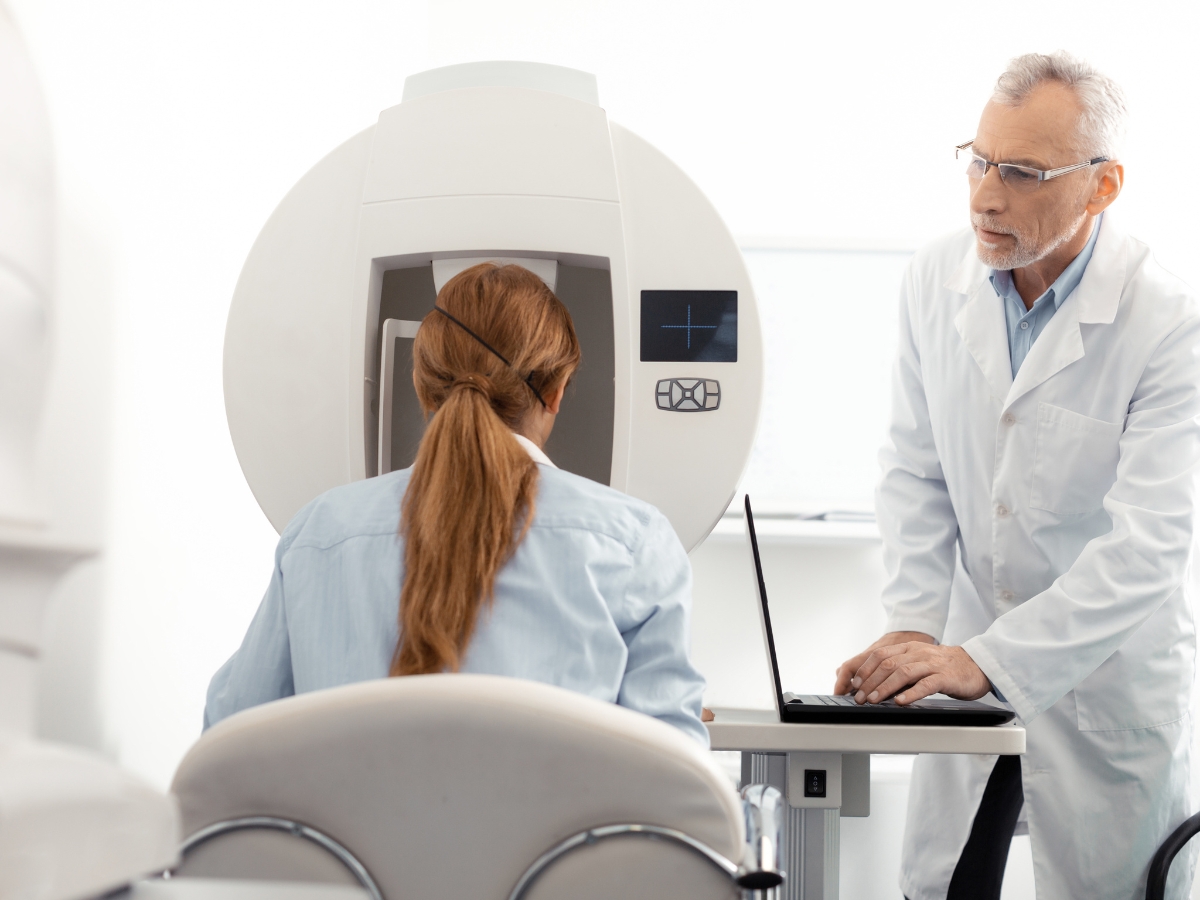Share the post "Your Health Matters: Exploring the Scope of Texas Medicaid"
Everyone should have access to medical care. One of the biggest problems with receiving quality health services is that many people can’t afford them. Unfortunately, tens of thousands of U.S. citizens die yearly because they cannot afford health insurance to cover medical costs.
Medicaid is a health insurance program designed for Americans with financial difficulties. It offers comprehensive and affordable coverage, helping low-income individuals overcome illnesses. Several different types are available, causing many people to ask, what does Texas Medicaid cover?

What Is Texas Medicaid?
Medicaid is the primary public health program for low-income people in the United States. It provides health care coverage for over 60 million Americans, making it one of the most important public programs in the country. It accounts for around 20% of all personal healthcare money spent in the U.S.
These figures not only show how important Medicaid is for people and their families, but also demonstrates how vital it is for the medical industry as a whole. The program helps hospitals, medical centers, and local economies thrive by pumping much-needed financing into the community.
Medicaid is a federal initiative that operates throughout the entire country. However, each state can run its program within the parameters outlined by national bodies. The guidelines are pretty broad, so Medicaid’s structure and administration can vary significantly between states.
Therefore, Texas has a particular Medicaid program that may differ from other states, particularly regarding eligibility and specific benefits. However, the core purpose of Texas Medicaid is to enhance the general health of the Texas people by providing medical care to those who may not otherwise be able to pay for it themselves.
This objective is being achieved through a range of critical strategic initiatives. Firstly, Medicaid seeks to increase the awareness and practice of preventative medicine. It also promotes the importance of continued care for long and healthy lifestyles.
Finally, Medicaid provides a medical home for those in need and ensures patients don’t just receive care but get access to high-quality and comprehensive medical services. In Texas, 17% of the population is covered by Medicaid, translating to almost 5.3 million people.

Medicaid In Texas: Eligibility For Adults
As mentioned, Medicaid is for low-income individuals and families so there are set eligibility requirements. To qualify for Texas Medicaid, you must be from the United States or hold citizen, permanent resident, or legal status there. You must also be a resident of the state of Texas.
Financially, you must be categorized in the low-income or very low-income bracket. Finally, you need to be considered as one of the following:
- Pregnant
- Responsible for a minor who’s 18 years old or younger
- Blind
- Disabled
- Have a disabled family member in your household
- 65 years old or older
Below, you can find the annual household income that enables you to qualify for Medicaid. Please note that these figures represent your income before taxes.
| Number of people in household | Maximum income threshold (annual) |
| 1 | $28,869 |
| 2 | $39,046 |
| 3 | $49,223 |
| 4 | $59,400 |
| 5 | $69,578 |
| 6 | $79,755 |
| 7 | $89,932 |
| 8 | $100,109 |
If the household has more than eight members, you can add $10,177 per extra person to find the maximum threshold. It’s almost important to note that the precise financial figures can change from time to time so we recommend checking the figures with a Medicaid representative to confirm your eligibility status.

What Does Texas Medicaid Cover?
In the state of Texas, there are five different types of Medicaid programs that are carefully designed for specific demographics. The main goal of each of these programs is to emphasize preventative medicine, ongoing wellness and care, as well as health care service provision.
It provides a safeguard to those who are most in need, like mothers, children, pregnant women, the elderly, and people with disabilities. Depending on your specific circumstances, Medicaid can provide coverage for basic services like checkups, all the way to major surgeries or at-home care.
Once you qualify for Texas Medicaid, you’ll have to go through the available medical plans with your local provider. The plans will contain details about the doctors and medical centers available to you in your area.
Some people prefer to keep everything as close to home as possible while others choose to travel to go with their preferred doctors. Ultimately, you’ll have to review several plans and determine which one is most suitable for you and your family.
There are also add-ons to programs called value-added services. These are paid extras but are generally available at discounted prices. Different value-added services are available for the various Medicaid programs. Typical value-added services include things like:
- 24-hour nurse call line
- Transport services
- Vision benefits (discounts for prescription glasses, etc.)
- Children’s health programs (e.g. sports club memberships)
- Mental health resources
- Sports/school physicals
- Weight loss programs
This is just a short list to give you an idea of the extra services. Their availability is dependent on your location and the partner organizations in your area. You can consult your local Medicaid provider to get a full list of the value-added services you’re eligible for.

STAR
The State of Texas Access Reform (STAR) Managed Care Program caters primarily to children and pregnant women. Once you qualify for Medicaid, the STAR program is available at no cost. This program has no prescription or hospital day limitations and also includes health education classes.
The children’s portion of this program covers your child from birth all the way to the month of their 21st birthday when they’re deemed a fully grown adult. Income is the main factor that determines eligibility and the requirements change depending on age and the particular Medicaid program you choose.
With STAR, you must recertify every year so it’s important to be cognizant of the income requirements according to the age of your child. Newborn babies are recommended to be enrolled in a STAR Medicaid program as soon as they’re born, in case they need medical treatment.
Pregnant women can qualify for Medicaid if they’re within a certain poverty threshold. This is subject to change but it’s usually from below the Federal Poverty Level (FPL) to 185% of it. Childbearing women of all ages can qualify for a program. Again, you must recertify every year.
Standard benefits of the STAR Medicaid program include:
- Regular checkups (doctor and dental)
- Drug prescriptions and vaccines
- Hospital care
- Laboratory tests
- X-rays
- Hearing and vision treatment
- Access to medical specialists
- Access to mental health care
- Medical treatment for specific health needs or pre-existing conditions

STAR+PLUS
STAR+PLUS Medicaid is a special program for adults with disabilities, people aged 65 or older, and women who have cervical or breast cancer. Most of the STAR+PLUS health plans include standard health care services, like with the STAR plan, such as:
- Checkups
- Specialty physician care
- Hospital care
- Hearing and vision treatment
- Nursing services
- Behavioral health services
However, the primary difference with this Medicaid package is that it includes long-term services and support. Adults with disabilities, the elderly, and women with serious illnesses like cancer require significant support from caregivers. Some of the long-term services included in STAR+PLUS are:
- Primary home care
- Daily home visits to help with regular activities
- Assistance adapting your home to make it safer
- Help with other personal issues that you need assistance for
Those eligible for STAR+PLUS Medicaid are visited by a service coordinator after enrolling in the program. They assess the needs of the member and can also offer further care if necessary, through the Home and Community Based Services (HCBS) waiver. These services may include:
- In-home nursing
- Meal delivery services
- Therapies (e.g. cognitive rehabilitation, occupational, or physical)
- Home modifications
- Dental work
- Respite services
- Medical supplies
- Assisted living services
- Employment assistance
- Financial management

STAR Kids
STAR Kids is a program for children or adults aged 20 and younger with disabilities. To be eligible for medical care as part of the STAR Kids program, a child must be 20 or below, covered by a Medicaid package, and fulfill at least one of the following requirements:
- Receive Supplemental Security Income (SSI)
- Receive Medicaid and Medicare
- Live in a community care facility (for kids with an intellectual disability) or a nursing home
- Receive services through the Medically Dependent Children Program (MDCP) waiver
- Receive services via the Youth Empowerment Services (YES) waiver
- Receive services through other Intellectual and Development Disability (IDD) waivers, such as:
- Community Living Assistance and Support Services (CLASS)
- DeaFBlind with Multiple Disabilities (DBMD)
- Home and Community-Based Services (HCS)
- Texas Home Living (TxHmL)
As with the other Medicaid programs, the member must choose from a health plan. They will also select a primary care physician (or a clinic) to provide basic medical services when they’re needed. The basic benefits and coordination of care include services like:
- Checkups
- Specialist health care
- Prescription drugs
- Hospital care
- Preventative and personal care
- Medical equipment and supplies
- In-home nursing
A big part of the STAR Kids program is the coordination of care. This means that families get help assessing the health needs of their child and they also receive assistance in identifying suitable health care providers and arranging treatments and choosing a suitable health plan.

STAR Health
The STAR Health program operates under a tagline that says “Embracing Every Child”. This Medicaid program is available throughout Texas for children in the Texas foster care system. It’s an extremely important program that not only provides health services for foster kids, but also trains key caregivers, like:
- Primary caregivers
- Caseworkers
- Foster parents
- Families of foster kids
The STAR Health program is run in partnership with the Texas Department of Family and Protective Services (DEPs). It’s a managed care program that involves multiple parties, from caregivers to foster parents, and from health care professionals to transportation services.
This program is available for the following categories of youths:
- Minors in DFPS conservatorship (under 18 years old).
- Minors in the Adoption Assistance or Permanency Care Assistance program who are transitioning from STAR Health to STAR Kids or STAR programs.
- Young people (21 years old or younger) who are in voluntary extended foster care placement agreements.
- Young people (20 years old or younger) who are Former Foster Car Children (FFCC).
Those enrolled in the STAR Health program receive comprehensive medical coverage that includes services such as:
- Standard doctor checkups and dental visits
- Prescription drugs
- Vaccines
- Hospital care
- X-rays
- Laboratory tests
- Hearing and vision care
- Access to mental health services
- Access to medical specialists
- Treatment for special health requirements
- 24/7 hotline for caregivers and caseworkers
- Access to the “Health Passport”, which is a comprehensive online electric health record

Traditional Medicaid
Traditional Medicaid is available to members who aren’t eligible for STAR, STAR+PLUS, STAR Kids, or STAR Health. It’s typically managed by the Texas Health and Human Services Commission (HHSC) or sold to a Managed Care Organization (MCO), like a Health Maintenance Organization (HMO).
With this system, all medical bills of Medicaid members are sent directly to the HHSC and are subsequently paid by this commission directly to the healthcare providers. Payments can only be paid to providers that are part of the Medicaid program. So, members must make sure that providers are also members of Medicaid.
Does Medicaid Cover Dental In Texas?
Most Medicaid programs provide dental services as part of their standard packages. However, this may not be the case for some health plans. So, it’s important to check with the healthcare provider beforehand to confirm exactly what’s included.
How To Apply For Emergency Medicaid Texas
The best way to apply for any Medicaid program, whether it’s an emergency or not, is through an intermediary health planning provider. There are many throughout the state of Texas. These companies guide you through the process and make it as simple as possible.
However, when it comes to emergency Medicaid, you need different forms. Your attending practitioner must sign an Emergency Medical Services Certification (Form H3038) or a CHIP Perinatal – Emergency Medical Services Certification (Form H3038-P).
References
- National Medicaid statistics: kff.org
- Medicaid covers 17% of Texas population: kff.org
- Texas Medicaid eligibility: benefits.gov
- STAR Medicaid coverage: hhs.texas.gov
- STAR+PLUS Medicaid coverage: hhs.texas.gov
- Emergency Medicaid forms: hhs.texas.gov
Share the post "Your Health Matters: Exploring the Scope of Texas Medicaid"
Christian Linden is a seasoned writer and contributor at Texas View, specializing in topics that resonate with the Texan community. With over a decade of experience in journalism, Christian brings a wealth of knowledge in local politics, culture, and lifestyle. He holds a Bachelor's degree in Communications from the University of Texas. When he's not writing, Christian enjoys spending weekends traveling across Texas with his family, exploring everything from bustling cities to serene landscapes.











